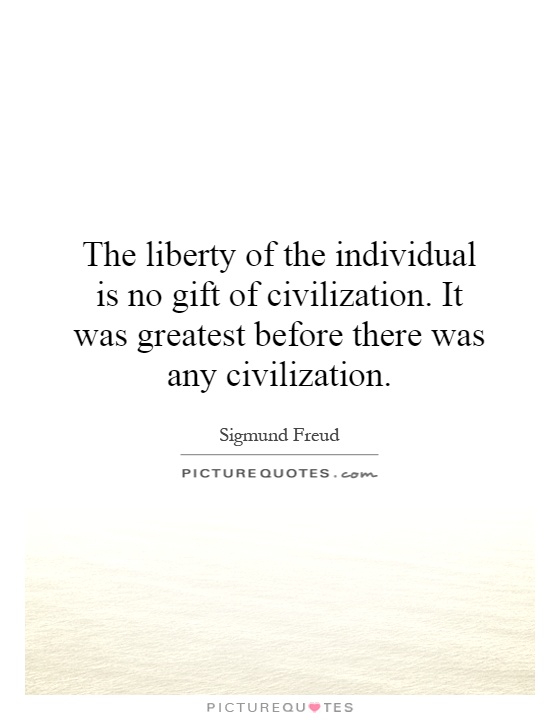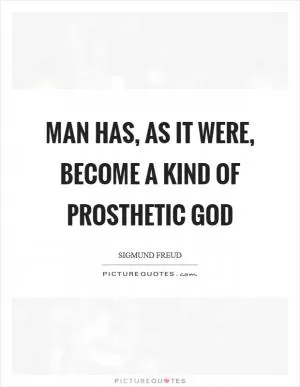The liberty of the individual is no gift of civilization. It was greatest before there was any civilization

The liberty of the individual is no gift of civilization. It was greatest before there was any civilization
Sigmund Freud, the renowned psychoanalyst, would likely have a complex perspective on the idea that the liberty of the individual is not a gift of civilization, but rather was greatest before civilization existed. Freud's theories often delved into the depths of the human psyche, exploring the unconscious motivations and desires that drive human behavior. In this context, Freud might argue that the concept of individual liberty is not something that can be bestowed upon individuals by society, but rather is an inherent aspect of human nature that predates civilization.Freud's theory of the id, ego, and superego suggests that human beings are driven by primal instincts and desires that exist within the unconscious mind. These instincts, such as the drive for self-preservation and the pursuit of pleasure, are fundamental aspects of human nature that existed long before the development of civilization. In this sense, Freud might argue that individual liberty is not a construct of civilization, but rather a natural aspect of human existence that has always been present.
Furthermore, Freud's concept of the "pleasure principle" suggests that individuals are driven by a desire to seek pleasure and avoid pain. This innate drive for pleasure could be seen as a form of individual liberty, as individuals are free to pursue their own desires and interests in order to fulfill their need for pleasure. In this sense, Freud might argue that individual liberty is not a product of civilization, but rather a fundamental aspect of human nature that has always existed.
However, Freud also recognized the role that civilization plays in shaping and constraining individual liberty. In his theory of the "civilizing process," Freud argued that civilization imposes restrictions on individual behavior in order to maintain social order and stability. These restrictions, such as laws and social norms, can limit individual liberty and constrain the expression of primal instincts and desires.
Overall, Freud's perspective on the relationship between individual liberty and civilization would likely be complex and multifaceted. While he might argue that individual liberty is a natural aspect of human existence that predates civilization, he would also acknowledge the ways in which civilization can both enable and constrain individual liberty. Ultimately, Freud's theories would suggest that the concept of individual liberty is deeply intertwined with the complexities of human nature and the dynamics of society.












 Friendship Quotes
Friendship Quotes Love Quotes
Love Quotes Life Quotes
Life Quotes Funny Quotes
Funny Quotes Motivational Quotes
Motivational Quotes Inspirational Quotes
Inspirational Quotes